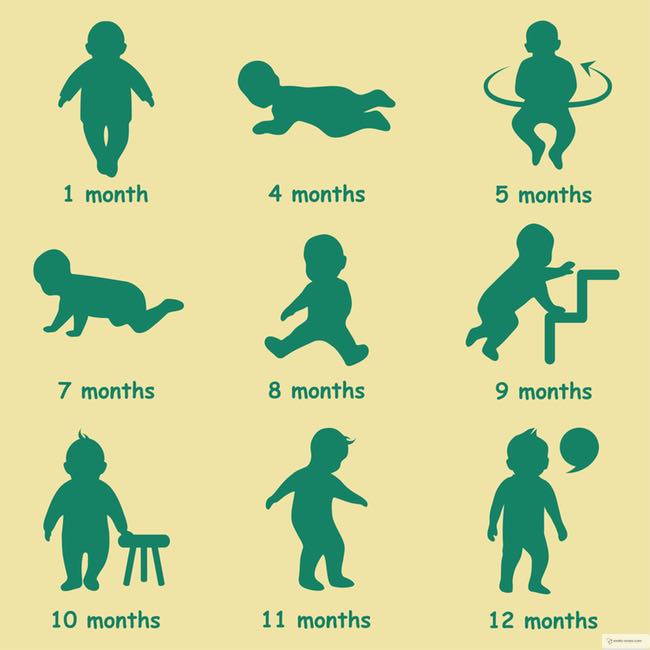 Source: bing.com
Source: bing.comAs a parent, you want to give your baby the best start in life. One of the most important things you can do is to support your baby’s motor development. Motor development refers to the ability to move and control the body, and it’s critical for your baby’s physical and cognitive growth. In this article, we’ll explore some ways you can support your baby’s motor development.
Table of Contents
1. Tummy Time
Tummy time is an essential activity that can help your baby develop their motor skills. It involves placing your baby on their stomach while they are awake and supervised. This position can help strengthen their neck and back muscles, which are important for crawling, sitting, and eventually standing. You can start with just a few minutes of tummy time each day and gradually increase the duration as your baby gets stronger.
2. Provide Plenty of Opportunities To Move
Babies learn by exploring their environment, so it’s essential to provide them with plenty of opportunities to move. You can do this by allowing them to play on a soft, safe surface and providing toys that encourage crawling, reaching, and grasping. As your baby grows and becomes more mobile, you can also create safe spaces for them to explore, such as a gated play area or a baby-proofed room.
3. Encourage Gross Motor Skills
Gross motor skills refer to the ability to use large muscles in the body, such as those in the legs and arms. Encouraging your baby to practice these skills can help them develop strength, coordination, and balance. You can do this by playing games such as “airplane” or “bicycle” with your baby, helping them learn to crawl or walk, and providing them with toys that promote gross motor skills, such as balls or ride-on toys.
4. Support Fine Motor Skills
Fine motor skills refer to the ability to use small muscles in the body, such as those in the fingers and hands. These skills are critical for tasks such as grasping objects, feeding, and eventually writing. You can support your baby’s fine motor development by providing them with toys that encourage grasping and manipulating, such as rattles or stacking blocks. As your baby gets older, you can also introduce activities such as finger painting or playing with playdough.
5. Practice Sensory Play
Sensory play involves engaging your baby’s senses, such as touch, sight, and sound. This type of play can help your baby develop important motor skills, as well as cognitive and social skills. You can practice sensory play by providing your baby with toys that make noise, have different textures or colors, or by playing games such as peek-a-boo or pat-a-cake.
Frequently Asked Questions
What age should you start tummy time?
You can start tummy time as early as the first week of life. Start with just a few minutes at a time and gradually increase the duration as your baby gets stronger.
What are some toys that promote motor development?
Toys that promote motor development include balls, blocks, stacking toys, rattles, ride-on toys, and toys with different textures or colors.
How can you encourage crawling?
You can encourage crawling by placing toys just out of reach, creating a safe space for your baby to explore, and providing plenty of tummy time to strengthen neck and back muscles.
What are some fine motor activities for babies?
Fine motor activities for babies include grasping and manipulating toys such as rattles or stacking blocks, finger painting, and playing with playdough.
When should your baby start walking?
Most babies start walking between 9 and 15 months of age, but every child is different. It’s important to remember that there is a wide range of what is considered “normal” for motor development, and your baby may reach milestones at their own pace.
Supporting your baby’s motor development is an essential part of helping them grow and thrive. By providing plenty of opportunities to move, encouraging gross and fine motor skills, and practicing sensory play, you can help your baby develop the skills they need to reach important milestones. Remember to be patient and enjoy watching your baby grow and learn!
